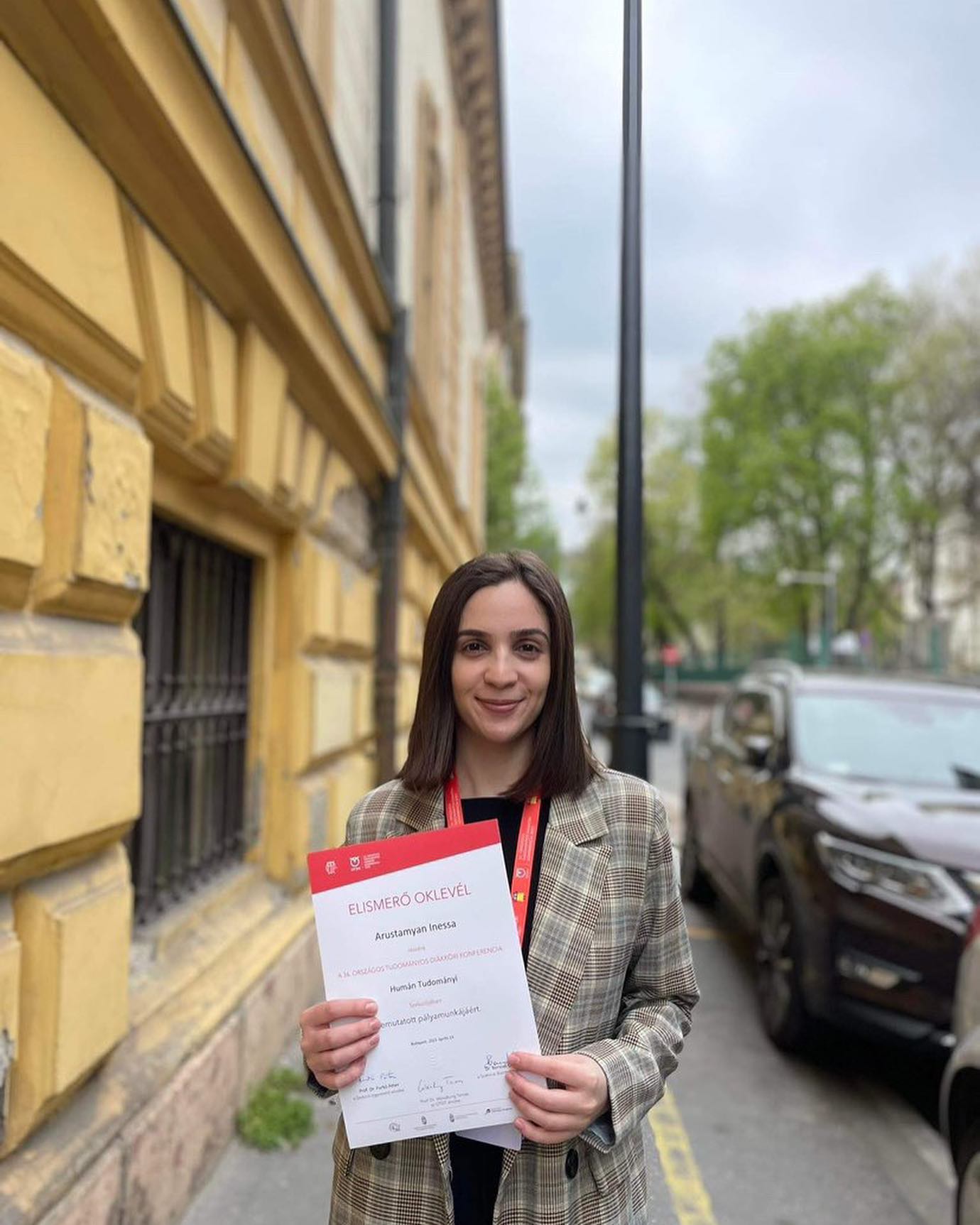Interview I
Inessa Arustamyan
The Colloquial Language of the Transylvanian Armenians (18-19th century)
(Special Award)

Dear Inessa, Your OTDK thesis deals with Transylvanian Armenian Linguistics. Please tell us more about your choice of this topic.
Since my specialty was Armenian language and literature, it was quite clear to me if there was a chance to do linguistics again, so why not? That chance was given to me by my supervisor Balint Kovacs, and I was sure that yes, I want to work on this topic. At first sight, I was very curious and interested to know more about this region, where and how the Armenians came from in Transylvania, and having a linguistic background, of course, I was very interested to go deeper into this subject, to do research that I had never done before, and to reveal something important to me and to those who are interested in it too.
What kind of methodology did you use to conduct the research?
First and foremost, I needed to work with the Transylvanian archives. Thanks to Professor Balint Kovacs and Professor Karen Jallatian, I conducted my first research work in Transylvania. We had a very productive one-week research project in the Armenian Catholic Collective Archive of Armenopolis (ACCA) (SZÖKGYL Szamosújvár), Arhivele Nationale (Cluj Napoca /Kolozsvár), Biblioteca Centrală Universitară "Lucian Blaga". In every archive, we have found several documents, letters, and vocabulary written in Armenian by famous Transylvanian-Armenians by that time. So the first step was archival research in Transylvania, selecting the sources for historical dialectological research. Then was one of the most interesting and difficult part of this research work; transliteration with Armenian letters (Heinrich/Hübschmann system for linguistical research), developing the textual corpus, and structuring the texts with English language short regests. These were our main methods of working.
As it was your first time doing archival work in Transylvania, how complicated was the process of working with the documents?
To be honest, working with documents in the archive is not that difficult if you do it with love and interest, so it was not such a big problem for me. Besides, I worked there with professors, and it was they who gave the first recommendations on how to work properly in the archive. It was a great opportunity and experience to work on archives and for the next research works it will be easier for me to collect materials and work with them.
Interviewer: Anna Galstyan


